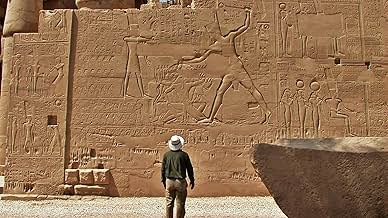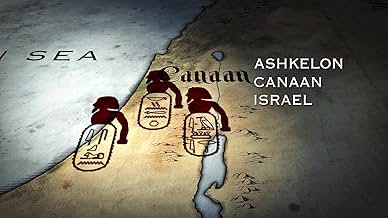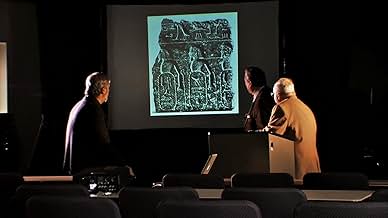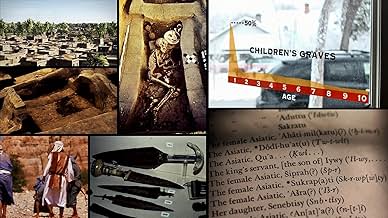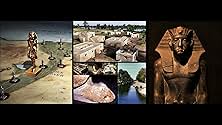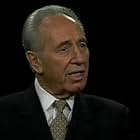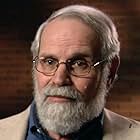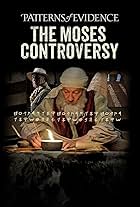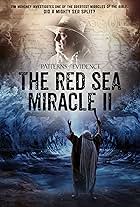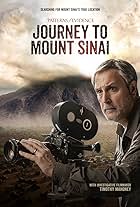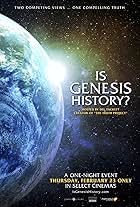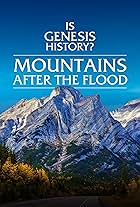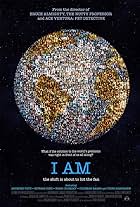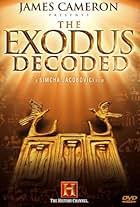IMDb RATING
7.0/10
1.2K
YOUR RATING
An investigation into the validity of the Exodus.An investigation into the validity of the Exodus.An investigation into the validity of the Exodus.
- Director
- Writers
- Stars
- Awards
- 6 wins total
Kevin Sorbo
- Narrator
- (voice)
David Wolpe
- Self - Author 'Why Faith Matters'
- (as Rabbi David Wolpe)
James Hoffmeier
- Self - Egyptologist, Author 'Israel in Egypt'
- (as James K Hoffmeier)
Manis Friedman
- Self - Biblical Scholar, Author
- (as Rabbi Manis Friedman)
David Hartman
- Self - Shalom Hartman Institute, Author
- (as Rabbi David Hartman)
- Director
- Writers
- All cast & crew
- Production, box office & more at IMDbPro
Featured reviews
As an amateur historian, I know when there is sufficient grounds to make an historical claim from evidence and when the claim is "reaching", drawing conclusions to fit preconceived notions. In other words, when "historians" try to prove something they already believe in advance, we should gently question whether their conclusions may be colored by bias. There's a difference between an historian who attempts to find out how Ancient Egyptians lived versus trying to prove the biblical accounts regarding the Hebrews and the Egyptians are true. If they find evidence which might "fit" into their overall perspective, and they make claims which rely mostly upon interpretation of the evidence rather than what the evidence itself suggests, this is regarded as borderline or even bad scholarship, also called "confirmation bias".
The documentary "Patterns of Evidence" seeks to prove whether the Exodus of the Bible is a true event, since the Bible must be taken literally, or so the central figure/narrator claims. (The reading of biblical texts as factual accounts is a gross misunderstanding of the texts.) At the beginning of the documentary, devout Christian filmmaker Tim Mahoney decides to find out if there is evidence to prove the historicity of the Exodus. In the first few minutes, Mahoney travels to the Eastern Mediterranean and meets Manfred Beitak, an Austrian Egyptologist and archaeologist who is excavating an ancient Semite town, Avaris. Mahoney, upon examining the excavation hypothesizes this could be the Israelite settlement given the Pharaoh's blessing in passages relating the life of the Patriarch Joseph of the "Coat of Many Colors". Mahoney makes this suggestion to Beitak, and the archaeologist responds that to connect this village with the biblical account is a "very weak affair". In other words, Beitak cannot conclude the town is the same one as depicted in the Bible. Mahoney becomes disappointed, and the whole experience puts into question his faith, because, as he sees it, the Bible must be true history otherwise his own faith might be based on a "lie".
He returns to the United States and then decides to take up the quest again at a more involved level. He begins by finding historians who have alternative theories which match his own beliefs. This is the first major problem with the documentary. Certainly, anyone can find "historians" and/or "scholars" who have views which contradict mainstream scholarship. While certainly there is nothing wrong with interviewing people who disagree with the larger academic and scholarly community and who voice their disagreements with a different rationale, I felt the documentary was completely unbalanced after Beitak's skepticism. Mahoney only seems to be interested with those scholars on the outside of modern scholarship who wish to make the case that current Egyptian scholarship is "flawed" and that the Bible and Egyptian chronology do in fact match but requires a complete rethinking Egyptian history, known as the "New Chronology".
Shortly thereafter, Mahoney interviews David Rohl, a highly controversial figure in Ancient Egyptian studies. Rohl has proposed a so-called "New Chronology", an alternative view of the chronological events and dates of Ancient Egypt. He claims the town of Avaris is called "The Land of Ramses" in the Bible, and the confusion comes because a biblical editor at some time used the term "Land of Ramses" to depict Avaris. He believes mainstream scholarship is completely incorrect in terms of Egyptian Chronology. While, I have no problem with hearing Rohl's rationale (which would at face value put into question the idea of the Bible as unerring history), there is no counter figure who explains the mainstream view. The only words we get from Beitak at the beginning is that the hypothesis is a "weak affair", but we don't hear the rest of the interview as to why he questions Rohl and others who work on the "outside".
At Avaris, there has been found the remains of a large statue inside a small pyramid structure of a prominent person, probably a great leader. Now, I do agree, the evidence does suggest the prominent person is a Semite and not an Egyptian because of the hairstyle. However, the documentary wants to prove that this may be in fact Joseph of "The Coat of Many Colours" fame from the Bible. They point to some faded paint on the remains of the statue's shoulder which they claim are remains of a depiction of a colored coat! This is really reaching. Some flecks of paint are not enough to jump to the conclusion this is the Coat of Many Colours and therefore Joseph! It could simply be the remains of the depiction of royal robes, since red as a royal color goes back millennium. Also, the documentary says that 12 graves were found near the statue, which could be the 12 tribes of Israel. Yes, it could be, but again, to conclude the existence of twelve graves means that these represent the Twelve Tribes of Israel as fact is a huge leap. If there were Hebrew inscriptions attesting to such, then that would be compelling evidence. As it stands, what we have are the remains of a statue and the remains of twelve graves, which would not be enough to compel academia to concur with Mahoney's hypotheses.
The statue remains at Avaris and the conclusions drawn are just a few of the problems with how this documentary is making its claims. It takes some evidence, then looks at the Bible, sees if they match, and then draws conclusions. There was no evidence outside of interpretation Avaris was an Israelite town once having been led by the Biblical Joseph. What they needed were other scholars to explain why some of the conclusions drawn were not accepted by mainstream historians. I am sure people who believe the world is flat could also find a few convincing "scholars" who make very convincing arguments about their views. Much of what is presented as "fact" is really simply "opinion" disguised as fact.
The documentary "Patterns of Evidence" seeks to prove whether the Exodus of the Bible is a true event, since the Bible must be taken literally, or so the central figure/narrator claims. (The reading of biblical texts as factual accounts is a gross misunderstanding of the texts.) At the beginning of the documentary, devout Christian filmmaker Tim Mahoney decides to find out if there is evidence to prove the historicity of the Exodus. In the first few minutes, Mahoney travels to the Eastern Mediterranean and meets Manfred Beitak, an Austrian Egyptologist and archaeologist who is excavating an ancient Semite town, Avaris. Mahoney, upon examining the excavation hypothesizes this could be the Israelite settlement given the Pharaoh's blessing in passages relating the life of the Patriarch Joseph of the "Coat of Many Colors". Mahoney makes this suggestion to Beitak, and the archaeologist responds that to connect this village with the biblical account is a "very weak affair". In other words, Beitak cannot conclude the town is the same one as depicted in the Bible. Mahoney becomes disappointed, and the whole experience puts into question his faith, because, as he sees it, the Bible must be true history otherwise his own faith might be based on a "lie".
He returns to the United States and then decides to take up the quest again at a more involved level. He begins by finding historians who have alternative theories which match his own beliefs. This is the first major problem with the documentary. Certainly, anyone can find "historians" and/or "scholars" who have views which contradict mainstream scholarship. While certainly there is nothing wrong with interviewing people who disagree with the larger academic and scholarly community and who voice their disagreements with a different rationale, I felt the documentary was completely unbalanced after Beitak's skepticism. Mahoney only seems to be interested with those scholars on the outside of modern scholarship who wish to make the case that current Egyptian scholarship is "flawed" and that the Bible and Egyptian chronology do in fact match but requires a complete rethinking Egyptian history, known as the "New Chronology".
Shortly thereafter, Mahoney interviews David Rohl, a highly controversial figure in Ancient Egyptian studies. Rohl has proposed a so-called "New Chronology", an alternative view of the chronological events and dates of Ancient Egypt. He claims the town of Avaris is called "The Land of Ramses" in the Bible, and the confusion comes because a biblical editor at some time used the term "Land of Ramses" to depict Avaris. He believes mainstream scholarship is completely incorrect in terms of Egyptian Chronology. While, I have no problem with hearing Rohl's rationale (which would at face value put into question the idea of the Bible as unerring history), there is no counter figure who explains the mainstream view. The only words we get from Beitak at the beginning is that the hypothesis is a "weak affair", but we don't hear the rest of the interview as to why he questions Rohl and others who work on the "outside".
At Avaris, there has been found the remains of a large statue inside a small pyramid structure of a prominent person, probably a great leader. Now, I do agree, the evidence does suggest the prominent person is a Semite and not an Egyptian because of the hairstyle. However, the documentary wants to prove that this may be in fact Joseph of "The Coat of Many Colours" fame from the Bible. They point to some faded paint on the remains of the statue's shoulder which they claim are remains of a depiction of a colored coat! This is really reaching. Some flecks of paint are not enough to jump to the conclusion this is the Coat of Many Colours and therefore Joseph! It could simply be the remains of the depiction of royal robes, since red as a royal color goes back millennium. Also, the documentary says that 12 graves were found near the statue, which could be the 12 tribes of Israel. Yes, it could be, but again, to conclude the existence of twelve graves means that these represent the Twelve Tribes of Israel as fact is a huge leap. If there were Hebrew inscriptions attesting to such, then that would be compelling evidence. As it stands, what we have are the remains of a statue and the remains of twelve graves, which would not be enough to compel academia to concur with Mahoney's hypotheses.
The statue remains at Avaris and the conclusions drawn are just a few of the problems with how this documentary is making its claims. It takes some evidence, then looks at the Bible, sees if they match, and then draws conclusions. There was no evidence outside of interpretation Avaris was an Israelite town once having been led by the Biblical Joseph. What they needed were other scholars to explain why some of the conclusions drawn were not accepted by mainstream historians. I am sure people who believe the world is flat could also find a few convincing "scholars" who make very convincing arguments about their views. Much of what is presented as "fact" is really simply "opinion" disguised as fact.
I took a look at this, but sad to say, this is anything but scientific.
The scientific method - formulate a hypothesis and attempt to disprove it. Falsifiabilty is a cornerstone of the scientific method, and always beware of anybody who claims to have 'proved' something.
The non-scientific method (used here) formulate a hypothesis and attempt to prove it.
If you tried hard enough you could 'prove' that werewolves are real, or that Barak Obama is a Muslim.
The Biblical account MAY be true, but this contributes nothing to the story of Exodus.
The scientific method - formulate a hypothesis and attempt to disprove it. Falsifiabilty is a cornerstone of the scientific method, and always beware of anybody who claims to have 'proved' something.
The non-scientific method (used here) formulate a hypothesis and attempt to prove it.
If you tried hard enough you could 'prove' that werewolves are real, or that Barak Obama is a Muslim.
The Biblical account MAY be true, but this contributes nothing to the story of Exodus.
After you watch the first few minutes of this film, during which a myriad of Egyptologists and religious experts offer their opposing stance on the factuality of the Biblical Exodus, you will understand the enormous scope of the objective this film sets for itself. In a very bold move this film sets the bar extremely high immediately. So high in fact that if the evidence presented were not at this supreme level the whole film would have fallen on its face. Fortunately for all of us, Patters of Evidence: The Exodus delivers to the utmost.
Experts from all related fields, especially opposing views, are given their full time and respect. I was personally impressed with the no-expense-spared feel of the film. For example, Tim (the filmmaker) travels all over the world, speaks to an enormous number of experts, and shows more than enough evidence for all points made. In many documentaries I have watched I have been left with feelings of disappointment because the topic, or a specific point, was not explored thoroughly enough. I was not left with that feeling to any degree here.
This subject is so critical to ancient history and religion with much contemporary relevance. This film should be viewed by everyone, highly recommended.
Experts from all related fields, especially opposing views, are given their full time and respect. I was personally impressed with the no-expense-spared feel of the film. For example, Tim (the filmmaker) travels all over the world, speaks to an enormous number of experts, and shows more than enough evidence for all points made. In many documentaries I have watched I have been left with feelings of disappointment because the topic, or a specific point, was not explored thoroughly enough. I was not left with that feeling to any degree here.
This subject is so critical to ancient history and religion with much contemporary relevance. This film should be viewed by everyone, highly recommended.
I had yet to see a documentary, until now, that gave both sides of the argument an equal shot. This also felt like a movie with the music and effects that demonstrated certain pivotal points that the Director was making in his search for the truth about the evidence for the Exodus. The exposition is not over the top, and the interviews are concise, to the point. Not your typical documentary that is for sure, and a ground breaking one at that. I believe this documentary re-opens a debate that many considered closed for decades now. One of the reviews that I agree with said that, "After watching this documentary, any open minded individual would say to himself/herself, 'This makes sense'; consequently, at the very least, incline him or her to do more research for themselves." I highly recommend this to everyone, be you religious or not.
Went to see Patterns of Evidence: The Exodus last night. Was excited to go see this film when I first heard about it, and I was not disappointed. Mr. Mahoney has a gentle touch and deeply driven enthusiasm for the subject matter. Facts were placed before the audience in a manner that was easily understood, making a lot of sense. Grateful for the opinions of the professionals and for the panel discussion at the end, with all of my favorite commentators. Hope believers and nonbelievers alike will see this film and decide for themselves. Great film for young people as they begin to form their own opinions. For me, the facts were clear. Grateful to all those archaeologists who have made it their life's work to uncover the details of past generations. Grateful to Mr. Mahoney for taking this important moment of biblical history and making it come alive.
Did you know
- TriviaThis is narrated by Kevin Sorbo.
- SoundtracksInner Voices
From Inner Voices by R. Carlos Nakai
Courtesy of Canyon Records
- How long is Patterns of Evidence: Exodus?Powered by Alexa
Details
- Release date
- Countries of origin
- Official site
- Language
- Also known as
- Esodo: alla ricerca delle prove
- Production company
- See more company credits at IMDbPro
Box office
- Gross US & Canada
- $925,576
- Opening weekend US & Canada
- $764,309
- Jan 19, 2015
- Gross worldwide
- $925,576
- Runtime1 hour 55 minutes
- Color
Contribute to this page
Suggest an edit or add missing content

Top Gap
By what name was Patterns of Evidence: Exodus (2014) officially released in Canada in English?
Answer
